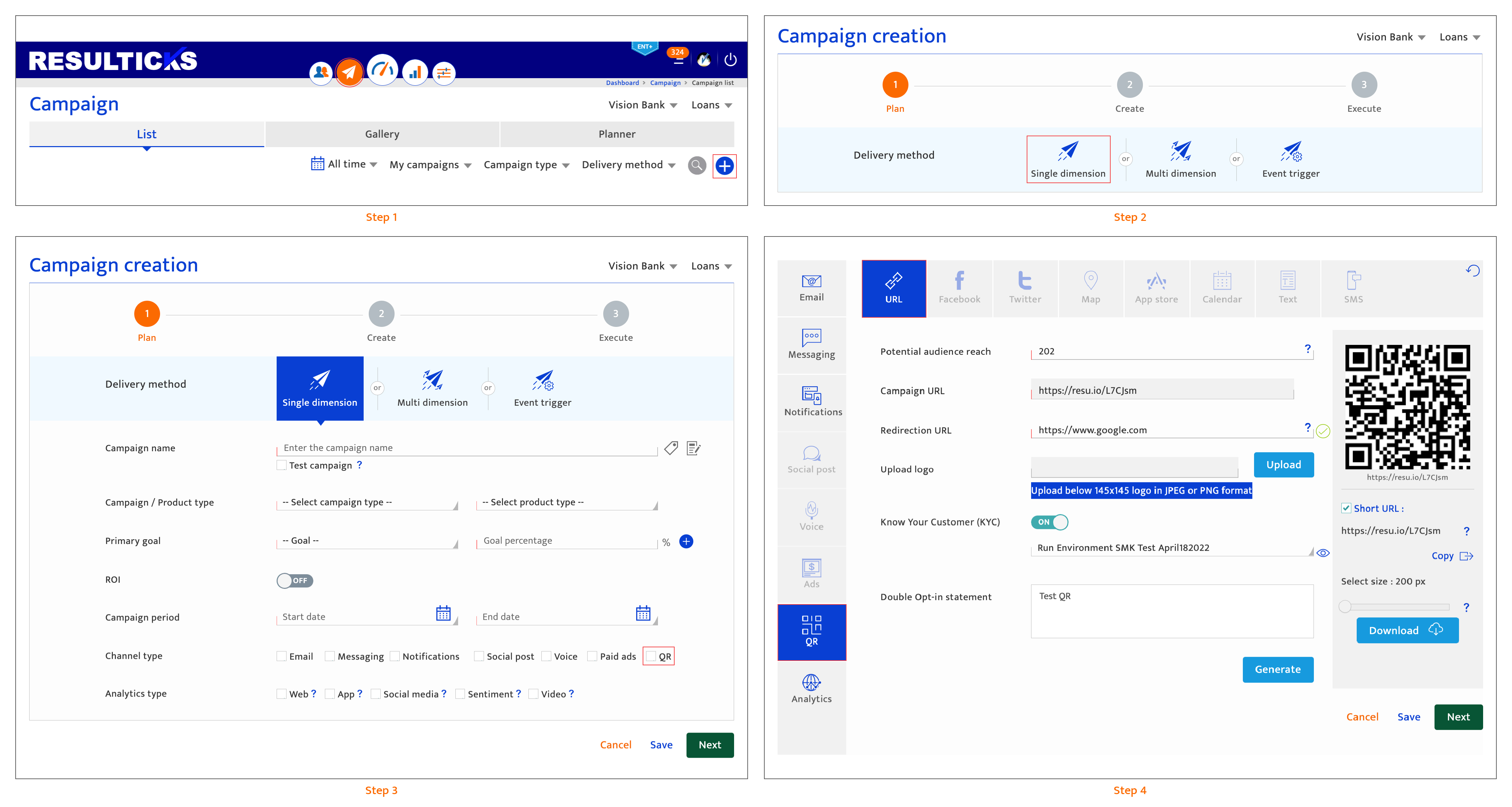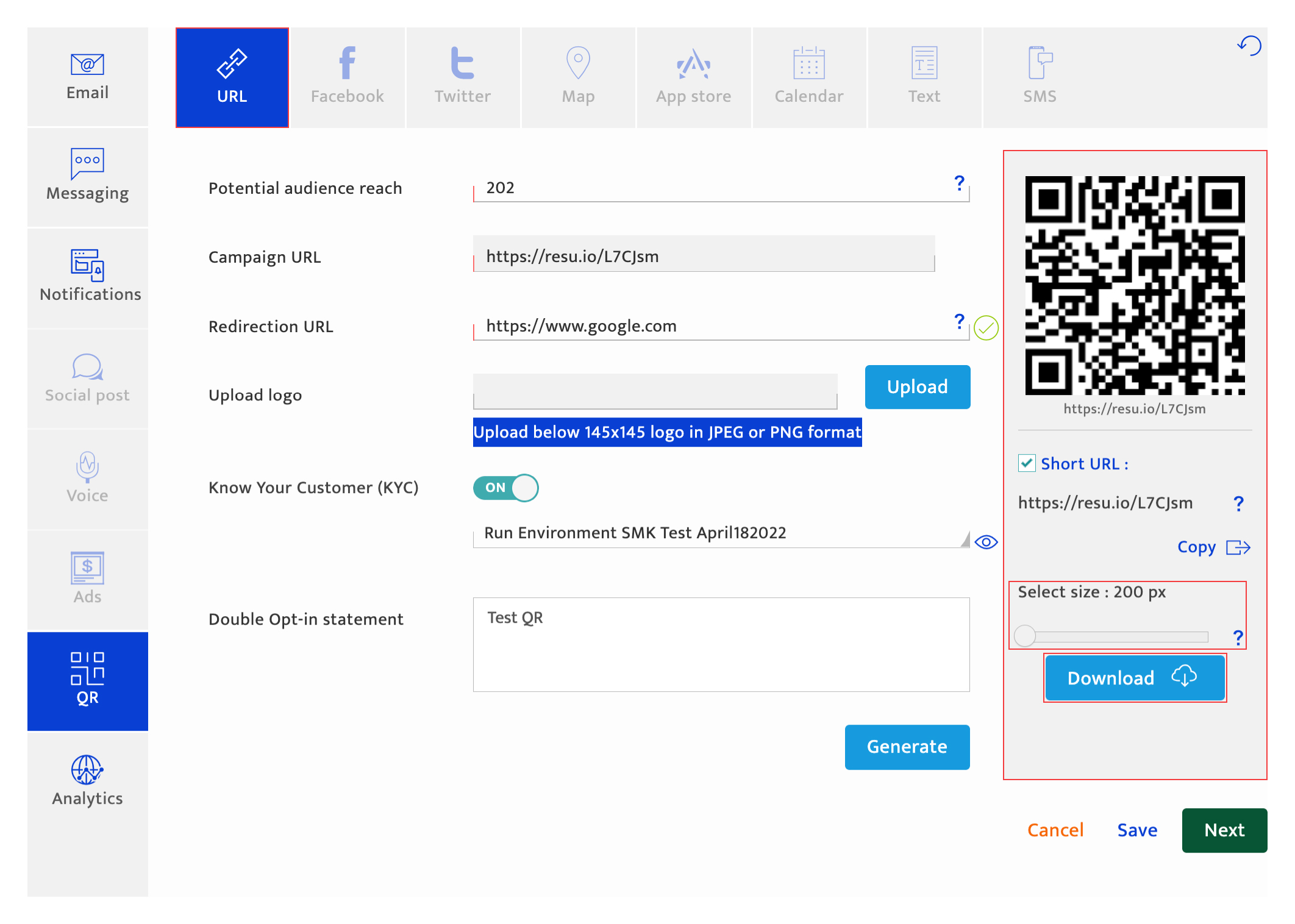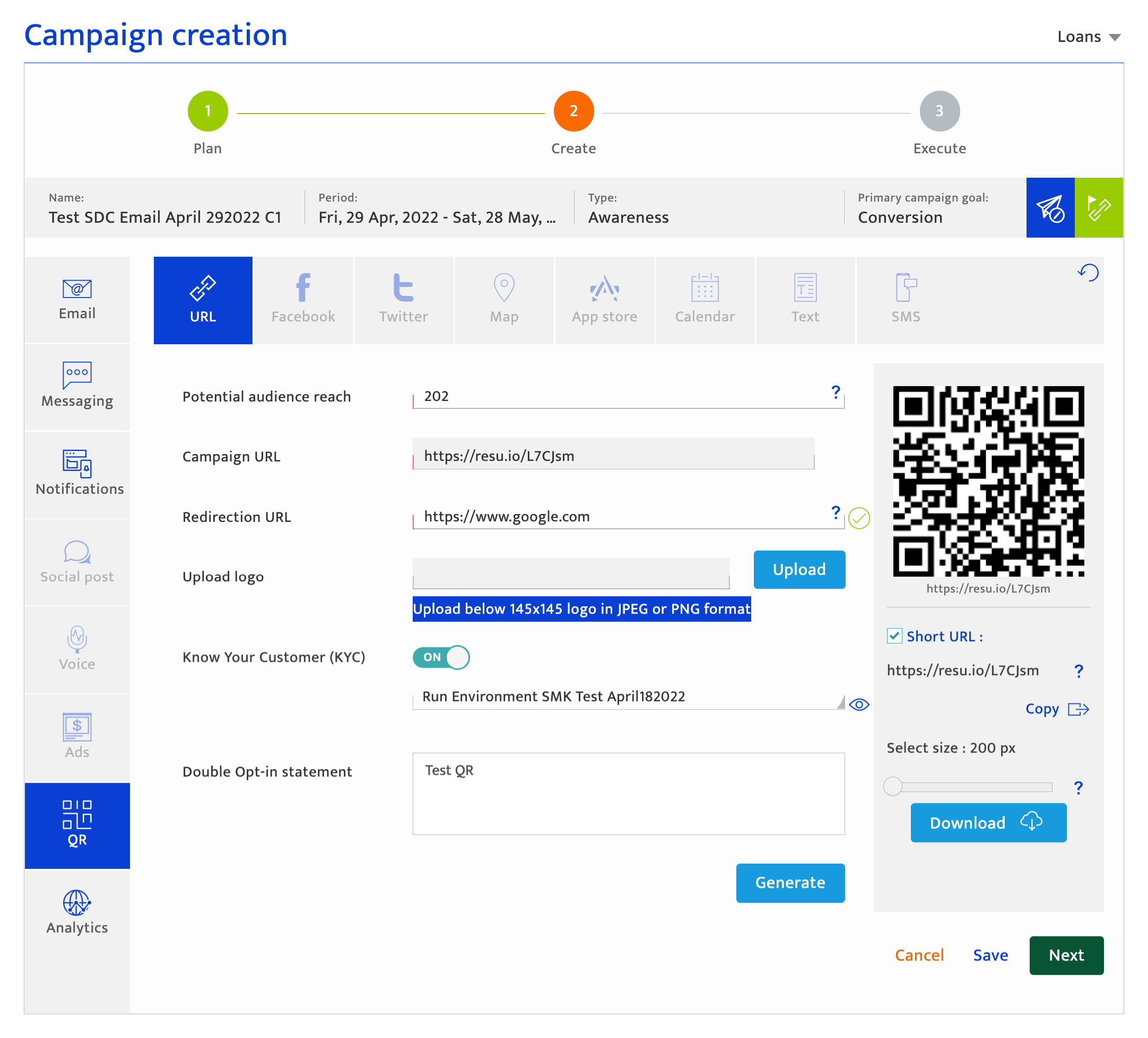QR-URL
What is it?#
QR Codes are used in a variety of marketing campaigns. This is a very effective and inexpensive medium for bridging the offline to the online gap in audience engagement and more.
QR code campaign features#
When scanned, QR codes generated by the Resulticks platform can be used to record individual engagement details by leveraging an embedded Smart Link.
This campaign module enables:
- Generation of QR code for different URLs
- Resizing the QR code
- Linking it to a Know Your Customer form for lead capture
- Provide the option for the double-opt-in mechanism for communications
Authorization and making changes#
Setting up a single dimension QR Code campaign can be done by a Super User, Administrator, or the Key Contact for the account.
Three-step process#
Managing QR Code campaigns follow a three-step process in Resulticks.

In this module, we only address Step 2. For step 1, access detailed guidance at Plan a single dimension campaign. For step 3, access detailed guidance at Execute a single dimension campaign.
Accessing QR code campaign creation for URL#
- Select the Campaign module and click on the "+" icon to add a campaign.
- Then select Single dimension delivery method.
- Select QR in the Campaign plan screen.
- Select URL within the campaign creation section, after selecting QR on the left panel.

Creating a QR code campaign for URL#
Next, follow the steps below to create a URL QR code.
- Refresh content by clicking the refresh icon. This will allow the user to restart the setup or move on to create a QR code for a different destination.
- Enter the audience size for the QR code. Potential audience reach number is used for reporting and campaign performance purpose. The numbers entered here will be used to calculate campaign performance/goal achievement.
- The campaign URL will be automatically be populated by the campaign Smart Link. If no Smart Link has been created, the user will need to enter a URL, in this case, you can add UTM parameters to this URL in order to personalize the landing page by clicking the UTM parameters checkbox.
- Enter a redirection URL to redirect the audiences if they scan the QR code after the specified campaign duration. The URL will be validated based on the platform’s built-in algorithms.
The user must enter a redirection URL if they want to:- Adjust the size of the QR code
- Download the QR code
- Save or move on to the next part of the campaign
- Upload a logo to be included in your QR code. Not mandatory.
Note: Accepted format is 145×145 logo in JPEG or png. - Switch on the know your customer (KYC) option to link to a KYC form.
- Select the KYC form from the dropdown list. The form can collect, in addition to the customer’s name, other defined attributes such as their email and/or mobile number.
- Click on the Preview to view the selected KYC form.
- Enter a text-only double opt-in message to be displayed to audiences on clicking the QR Code. There is a 150-character limit.
- Click the generate button to generate the QR code. If you do not click this button your QR code will not be generated.
- Adjust the size of the QR code by sliding the bar. Click the "Apply" icon to save it. Click the cloud icon to download the QR code.
- Check the short URL box if you would like the short URL to be displayed below the QR code.
- To the next step in the campaign creation process.
There are 4 options to proceed:- Click "Save" to save the current input and return to the Campaign-list. All mandatory fields on the current screen must be completed to save successfully. The platform will highlight any missing mandatory information.
- The campaign will be saved as "Draft" if it is a new campaign. If the user has been editing a "Draft" or "Scheduled" campaign, the campaign state does not change.
- Click "Next" to save the current input and proceed to the next step which is sequenced as follows:
- All mandatory fields on the current screen must be completed and the platform will highlight any missing mandatory information.
- If there are other channels integrated within this channel type (e.g. Social media), the input screen for the next available channel is displayed.
- If there are no more channels for the current channel type, the input screen for the next channel type selected during the planning step is displayed.
Note that analytics is treated as a channel type. - If setup for all channel types has been completed, the Campaign execution screen (pre-campaign analytics) is displayed.
- Click on another channel type. Only channel types selected during the campaign planning stage will be available. Input for the current channel type is discarded unless the user clicks 'Save' or "Next".
- Click "Cancel" to return to the Campaign-list screen. Any current input since the last time "Next" button was clicked is discarded.

